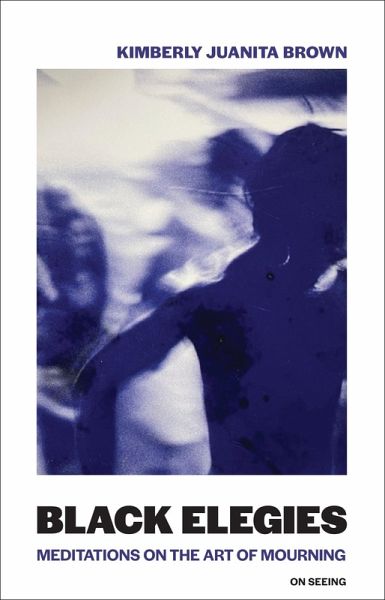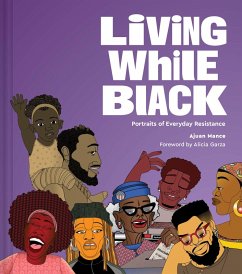
Black Elegies (eBook, ePUB)
Meditations on the Art of Mourning
Versandkostenfrei!
Sofort per Download lieferbar
11,95 €
inkl. MwSt.
Weitere Ausgaben:

PAYBACK Punkte
6 °P sammeln!
A poignant, unflinching study of black grief as a form of elegy found in visual art, music, literature-everywhere, if you know how to see it. In Black Elegies, Kimberly Juanita Brown examines the form of the elegy and its unique capacity to convey the elongated grief borne of sustained racial violence. Structured around the sensorial, the book moves through sight, sound, and touch to reveal what Okwui Enwezor calls the "national emergency of black grief." With her characteristic literary skill, Brown analyzes the work of major figures including Toni Morrison, Carrie Mae Weems, Audre Lorde, and...
A poignant, unflinching study of black grief as a form of elegy found in visual art, music, literature-everywhere, if you know how to see it. In Black Elegies, Kimberly Juanita Brown examines the form of the elegy and its unique capacity to convey the elongated grief borne of sustained racial violence. Structured around the sensorial, the book moves through sight, sound, and touch to reveal what Okwui Enwezor calls the "national emergency of black grief." With her characteristic literary skill, Brown analyzes the work of major figures including Toni Morrison, Carrie Mae Weems, Audre Lorde, and Marvin Gaye, among others. Brown contemplates recognizable sites of mourning: forced migration and enslavement, bodily violations, imprisonment and death. And she examines sites that do not register immediately as archives of grief: the landscape of southern U.S. slave plantations, a spontaneous street party, a quilt constructed out of the clothing worn by a loved one, a dance performance to hold the memory of history, and an aeolian harp installed at an institute of European art, among others. In this, the book offers a framework of mourning while black, within the parameters of contemporary artistic production. Brown asks: How do you mourn those you are not supposed to see? And where does the grief go? She shows us that grief is everywhere: "It spills out of photographs and modulates music. It hovers in the tenor and tone of cinematic performances. It resides in the body like an inspired concept, waiting for its articulation." Black Elegies is the second volume in the On Seeing series, following Kimberly Juanita Brown's Mortevivum: Photography and the Politics of the Visual. A media-rich open-access digital edition, created by Brown University Digital Publications, includes a Community Engagement Toolkit: on-seeing-black-elegies.org
Dieser Download kann aus rechtlichen Gründen nur mit Rechnungsadresse in A, B, BG, CY, CZ, D, DK, EW, E, FIN, F, GR, HR, H, IRL, I, LT, L, LR, M, NL, PL, P, R, S, SLO, SK ausgeliefert werden.













